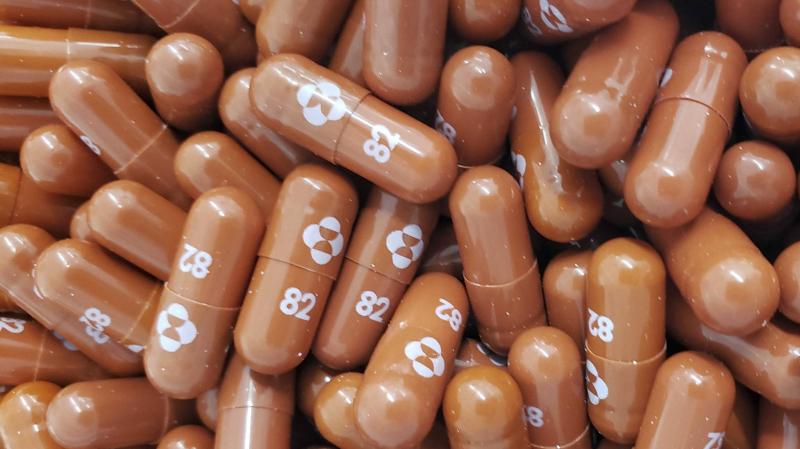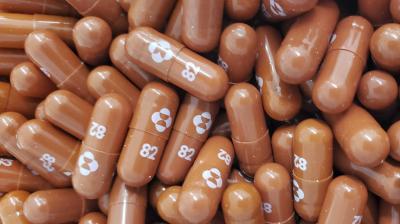On Monday, the American pharmaceutical giant Merck announced that it has submitted a request to U.S. drug authorities and "regulatory agencies worldwide" for emergency use authorization of its COVID-19 antiviral drug, Molnupiravir. According to the company, this drug, which is the first intended for oral treatment of COVID-19, can reduce the rate of serious infections requiring hospitalization by 50 percent.
Merck stated it is "working with regulatory agencies globally to submit requests for emergency use or marketing authorization in the coming months." Robert Davis, CEO and President of Merck, said in a statement that "the extraordinary impact of this pandemic requires us to act with unprecedented urgency." Wendy Holman, CEO of Ridgeback Biotherapeutics, Merck's partner, described the request as "a critical step toward making Molnupiravir available to individuals who may benefit from an oral antiviral medicine that can be taken at home shortly after being diagnosed with COVID-19."
In late-stage clinical trials, Merck and Ridgeback evaluated data from about 770 patients—nearly half received a five-day course of the drug, while the others received a placebo. Among the patients who received Molnupiravir, 7.3 percent were hospitalized by the twenty-ninth day compared to 14.1 percent of those taking the placebo, representing a relative risk reduction of 50 percent.
Nature magazine reported that the results have not yet been peer-reviewed, a recognized medical method for evaluating scientific research, but "if the treatment is approved by regulatory bodies, it will be the first oral antiviral treatment for COVID-19." The site noted that two Indian pharmaceutical manufacturers independently sought to end the drug's trial in their country as they "did not see any significant effectiveness" of the experimental drug for those with "moderate infections," although they plan to continue trials for individuals with mild infections.
However, a spokesperson for the company indicated that "moderate cases of COVID-19 infections in India are known to be more severe than in the United States and involve hospitalization." Information suggests that the drug is effective against virus variants, including Delta, and that the medication has "good safety profiles." Yet, experts cautioned that it is not a miracle cure and should complement vaccines, not replace them.
Merck stated in the announcement that it expects to produce 10 million treatment courses by the end of 2021, with hopes of producing more in 2022. The United States purchased 1.7 million courses of Molnupiravir pending approval, with options for further purchases. The global health agency Unitaid noted it is working with a partnership called ACT-Accelerator to secure the drug for low- and middle-income countries. Merck also mentioned its "plan to implement a tiered pricing approach based on income thresholds determined by the World Bank to reflect the relative ability of countries to finance their pandemic health response."
The company announced that it has also signed voluntary, non-exclusive licensing agreements for Molnupiravir with Indian pharmaceutical manufacturers to expedite the availability of the drug in over 100 low- and middle-income countries, pending necessary approvals.




